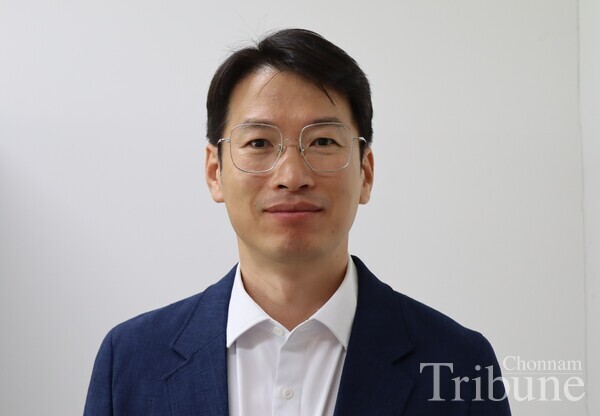
Not long ago, Jeon Woo-won, the grandson of former president Chun Doo-hwan, paid his respects at the May 18 National Cemetery and apologized for his grandfather’s mistakes. Jeon Woo-won identified Chun Doo-hwan as a criminal and a murderer, and as a member of his family, he sincerely apologized to the victims. The actions of Jeon Woo-won have attracted national attention but have had relatively little impact on the Gwangju community. This was because Gwangju was already experiencing considerable internal conflict in the aftermath of the “Engagement, Reconciliation, Gratitude, and Public Declaration Ceremony” held by the Association of the Victims of the May 18 Democratization Movement, the Association of the Meritorious People of the May 18 Democratization Movement, and the Special Forces Comrades’ Association in February. They argued that since the martial law soldiers had been damaged during the May 18 Democratization Movement and were suffering from trauma, they could be considered other victims. Therefore, they pledged to cooperate actively for national unity and inherit the spirit of May 18.
Despite the goal of forgiveness and reconciliation, this event was met with fierce criticism from civil society. Because the Special Forces Comrades’ Association still insisted that “the hard work and sacrifice of the senior special forces soldiers who were dispatched to the field after receiving orders and carrying out the mission should never be distorted or underestimated.” Moreover, it was because some May groups organized the event based on political and economic interests without sufficient discussion with civil society. In particular, there was a strong backlash from the ‘Post-May 18 generation’ who participated in the ‘May Movement’ in the 1980s and 1990s and experienced imprisonment, injury, or who have endured social discrimination because they were from Gwangju. They argued that the May 18 Democratization Movement was not only for those directly affected, that there could be no forgiveness without an apology, and that the efforts and sacrifices of the ‘Post-May 18 Generation’ for democratization should not be wasted.
The problem here is the ‘possibility of forgiveness’. Again, this issue raises two questions: ‘Is forgiveness without apology possible?’ and ‘Who is the subject of forgiveness?’. First of all, looking at the first question, Korean law states that a person who has committed a crime cannot be compelled to apologize. It is because it infringes on the conscience rights of individuals. People who commit crimes take responsibility (are punished) for their crimes, but they are not obliged to apologize to the victim. However, perpetrators who do not apologize are often criticized or socially isolated. Apologies are not required by law, but they are required by the public.
In the case of the second question, it is the question of whether only the victims of the May 18 Democratization Movement can forgive. In other words, we call those who died, were injured, or were imprisoned during the May 18 Democratization Movement victims. Then, do only these people have the right to decide forgiveness for the perpetrators (Martial Law Forces)? But, after May 18, a nationwide movement (called the ‘May Movement’) to find out the truth about May 18 and punish those responsible for the tragedy took place for over a decade, and in this struggle, many college students and citizens were killed, injured, or imprisoned. Therefore, they can also be seen as victims in a broad sense, and they can also be seen as subjects who have the right to decide whether or not to forgive.
Then, how do we solve this problem? Will we forget the past or forgive it through political compromise, as in the cases of Spain (the ‘Pact of Oblivion’ related to the Spanish Civil War) and Japan (the ‘Tokyo Trial’ after World War II)? As some politicians claim, should we forgive everything and move forward for national unity and the future? However, we have already experienced the consequences (distortion and slander of the May 18 Democratization Movement) created by punishment without apology (Chun Doo-hwan was punished, but did not apologize, and was pardoned through political compromise). Therefore, reconciliation made by forgiveness without apology is rather likely to lead to another problem. That is why we have to take a cautious approach to creating ‘forgiveness and reconciliation’.
By Kim Hyung-ju, Assistant Professor, May 18 Institute

